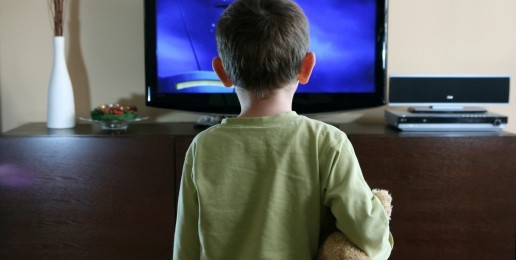
From Parents Television Counsel
The Henry J. Kaiser Family Foundation, one of the nation’s leading institutions devoted to research about health-care issues and their impact on the public sphere, this week released its new study Generation M2: Media in the Lives of 8- to 18-Year-Olds. The study found that, on average, children and teens ages 8-18 spend more than 53 hours a week using entertainment media — but because most of that time is spent using more than one form of media at once (simultaneously watching TV, listening to music, looking at a MySpace page online, and sending text messages to friends, for example), they actually use more than 75 hours a week with entertainment media — almost double the time they spend in school!
This increase in media use by children and teens is largely caused by the availability of mobile devices like cell phones and iPods. Today, 66 percent of 8- to 18-year-olds have their own cell phones, compared to 39 percent five years ago. And 76 percent of children have their own iPods or other MP3 players. Young people now spend more time listening to music, playing games, and watching TV on their cell phones than they spend talking on them. Online activities also contribute to increased media time, with teens involved in gaming, social networking, and looking at online video. Three-quarters of all 7th-12th graders say they have a profile on a social networking site like MySpace. And African-American and Hispanic children are especially hard-hit by media; the Kaiser study found that children in these groups consume nearly 4.5 hours more media daily than do whites, with African-American children watching almost twice as much TV per day as do white children.
THE IMPACT
Because of the rise of new technology like Internet-enabled cell phones, children have a multitude of ways to access media. This makes it that much more difficult for their parents to monitor what their children are watching, and to limit their child’s exposure to inappropriate programming. Increased time spent in front of electronic media means more exposure to harmful media content, whether Internet pornography, child predators who lurk in chat rooms and sites popular with young children, or sex, violence, and profanity on television.
For decades, television has reached children at a younger age, and for more time in a day, than any other socializing institution except the family. And the new technology has compounded the problem by making it easier for children to media multi-task. Thus, parents are not only spending less time with their children, sharing their beliefs and values, providing them with moral foundation and talking to them about the messages they are seeing on television; the harmful messages children are seeing are instead being reinforced by other media they are consuming.
Based on recent PTC research, those harmful messages include increased depictions of violence against women, and increased depictions of sex outside of the context of marriage (often with themes of sadism, masochism, pornography, prostitution, rape, adult-child relationships and more) on television alone. And on the Internet sites most visited by children, like YouTube, links to hardcore pornography and sexually explicit messages posted by site users are common.
WHAT YOU CAN DO
Limiting children’s media use is crucial to reducing the impact of negative media messages on them. Even if the content they are consuming is mostly harmless, time spent with electronic media has been linked to a number of negative outcomes for children, ranging from reduced academic performance, to increased likelihood of obesity, childhood diabetes, problems with sleep, and depression.
Parents should establish and enforce household rules on media use, both with respect to how much time children may spend using electronic media, and with respect to which media products are off-limits. (Only about three in ten young people say they have rules about how much time they can spend watching TV, using the computer, or playing video games. But the study found that when parents do set limits, children spend less time with media. Those with any media rules consume nearly 3 hours less media per day than those with no rules.)
Children should not have TVs and game consoles in their bedrooms. By confining TVs, computers and game consoles to family rooms, parents can significantly limit the amount of time kids spend with such media, as well as easily monitoring children’s activity. Similarly, parents who wish to buy their children cell phones should opt for phones that allow the child to only place and receive phone calls.
To read the Kaiser Foundation’s full report, click HERE.
For more on how media affects your children, click HERE.






















